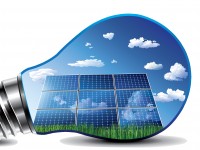 A recent Roland Berger study elaborates on the topic of decentralized solar energy generation producing significant changes for the utility industry, the shift posing a major threat for the current business model of utilities. At the same time, solar PV creates new business opportunities that fit well with the existing competences of the utilities, the study says.
A recent Roland Berger study elaborates on the topic of decentralized solar energy generation producing significant changes for the utility industry, the shift posing a major threat for the current business model of utilities. At the same time, solar PV creates new business opportunities that fit well with the existing competences of the utilities, the study says.
In Romania, solar energy had a very good progress in 2013, when solar parks of more than 800 GW became operational.
“Further investments have been discouraged however, on the back of the green energy support scheme update, coupled with green certificates prices decline, as well as overall power market prices drop,” stated Andra Ioana, senior project manager in the Bucharest office of Roland Berger.
Last year the solar park of Romania expanded with only 350 additional MW, reaching 1,223 MW in total – in 2014, solar energy generated accounted for approximately 1.5 percent of total power delivered into the system.
“Projects developed so far in Romania mainly consisted of generation units for power retail/ trading purposes. In contrast with other European states, relatively few companies or households in Romania decided to install solar panels in order to cover their own consumption,” added Andra Ioana.
In Europe, more and more households and commercial players are expected to make the decision to invest in solar PV and install it on their rooftop, especially on the back of set-up costs becoming more attractive over time.
In 2014 only the increase in solar PV capacity of 39 GW is close to the nuclear power capacity of Japan and total global capacity now stands at 177 GW. However, in Europe, traditional utilities are absent in this market segment.
“Utilities own less than 1 percent of all solar PV capacity. Project developers, investors, households and commercial companies have started to compete with the utilities in power generation,” according to Codrut Pascu, managing partner of Roland Berger in Central and Eastern Europe.
The new support scheme could however change the local set-up, as it could support small producers sell the generated power for regulated tariffs and thus make individual generation projects more appealing.
“Solar PV could become the catalyst for a larger trend towards decentralized energy generation, and all power utilities need to develop a sound strategy of addressing this potentially disruptive opportunity,” saidPascu.
Utilities have to prepare for demand and supply swings through a shift in their role from providing energy, to one of matching power demand and supply, thereby increasing their presence in trading, pundits say.
“However, utilities can exploit their long-established access to their customers and can turn all potential threats for the traditional business model into business opportunities” added Szabolcs Nemes, principal in the Bucharest office of Roland Berger.
Codrut Pascu concludes: “The energy landscape becomes more interesting. Utilities that position themselves right, can seize new business opportunities of the future. And this future is closer by than most of us have thought.”
Natalia Martian
Join us at Foreign Investors Summit for more topics on Energy.

Leave A Comment